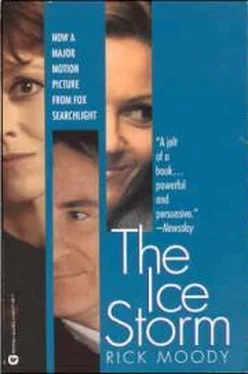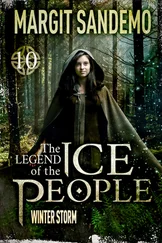It was late autumn, and the country club had been closed for three months, so no one had much played tennis lately. Or golf. A few, maybe, had played paddle tennis. But there was touch football and high school football and college football — which would be televised all weekend — and these were effective subjects, as were the professional sports. The Giants were again failing to live up to their promise. The Mets had been good until the series, and the Rangers were said to be excellent this year. See what you can learn from a quick glance at the second section of the Stamford Advocate?
Theology was out, of course, except for the practical issues at any given parish. Was anyone doing anything about the winter clothing drive? Who was supposed to make coffee this Sunday? Complaining about sermons was also a fine thing to do. Or about the rector at a church. And then there was popular religion: Godspell was a hit. Jesus Christ Superstar was a hit. Jonathan Livingston Seagull was a hit. (And the film version had just opened, featuring the songs of Neil Diamond.)
Likewise, there were the P.T.A. and local property taxes and the selectmen and the cessation of town meetings. But these were topics that would go only so far. What were you to do during the long, sprawling, drunken turns, when you were pinned to the wall by a bearded man with pinkeye who wanted to discuss two-headed dildos in African art or the bisexuality of higher mammals. What were you to say to him?
There was one man who had cornered her at parties in the past, who had gone through a sort of Gestalt-therapy cult where they made you sit still for three days in a win-dowless conference room and listen to convolutions about the universe, which would, it was said, improve your productivity at work. But this man was rarely invited to New Canaan parties anymore, and the fact that she had met him at the post office and later arranged to see him at a diner in Norwalk, well, it was probably just as well. Wesley. They’d had a vague, abstract sort of conversation and nothing had come of it anyway. Maybe that was how these things were supposed to turn out.
The only right and true subject for party conversation was gossip. The more tawdry the better. Elena had gossiped like anyone else, about friends checking themselves into Silver Meadow, about breakdowns and cheap affairs and white-collar crime. And Elena realized, of course, as Benjamin eased the Firebird up the hill toward the Hal-fords’ house, that she was now the subject of this gossip. She was appearing in public with a man who was no longer faithful to his wife. And the question in some circles would be whether or not she, Elena Hood, knew herself to be betrayed. She was like a lonely spinster now, a lonely spinster in a riverfront town, who wore, as perfume, her own urine.
On the other hand, maybe Benjamin Hood was right and everyone was a cuckold. Maybe the nature of marriage was to be both cuckolded and cuckolding, adulterer and adulteress. Yes, the thing to do was to relax into this deterioration, to recognize that we could still live in these calm and lovely homes and still make ourselves beautiful on occasion and still love our children and lavish them with the opportunity and affection that we never received. We could spill the wine and dig that girl.
* * *
HARD TIMES at the Baxter Building. Bleak House. Heartbreak Hotel. Is life not ironic? If nothing else? As Annihilus remarked back in issue #140. Love and work had come between the Fantastic Four, America’s greatest superheroes. For almost a year — a year in real time, a year in Paul Hood’s whirlpool teens, but a few days, no more, in the motionless, imperceptible time of Marvel comics — Sue Richards, nee Storm, the Invisible Girl, had been estranged from her husband. Reed Richards. With Franklin, their mysteriously equipped son, she was in seclusion in the country. She would return only when Reed learned to understand the obligations of family, those paramount bonds that lay beneath the surface of his work. In her stead, the Medusa had joined the Fantastic Four. Medusa: Tibetan-born Inhuman and cousin of Johnny Storm’s paramour, Crystal, the Elemental. Medusa: her tresses had a life of their own. Once a sworn enemy of the Fantastic Four, a member of the anti-F.F., the Frightful Four.
The mood in the Baxter Building was grim. Besides the Richards’s marital problems. Crystal had recently chosen to marry Quicksilver instead of Johnny Storm. Sue was worried about Franklin’s trances; Reed was worried about Sue; Johnny was worried about Crystal; Ben Grimm was worried about himself.
It was a good period for readers of the F.F. And Paul Hood was a compulsive reader of comics. Still, the magazine would never equal its first eighty issues, when its creators, Stan Lee and Jack Kirby, were at the helm. But it was pretty cool. Twelve years ago, exactly, in 1961, the first issue, with its chronicle of the battle with Mole Man, had appeared. Paul’s sister, Wendy, was almost the same age as the book. Fourteen years ago his family had arrived at its tetragonal shape. In fact, if you thought about it, it was possible that his sister, Wendy, was born during the creative gestation that led to the Fantastic Four. Where had Stan Lee been in those two years? The Hoods trailed after the implications of these characters as if Stan himself pulled their strings.
At a newsstand in Stamford, at the train station, Paul was perusing the squeaky spin rack in the rear, near the pornography, where the comics were nestled. Number 141 beckoned to him. It boasted, unsurprisingly, the end of the Fantastic Four. On the cover, a deeply perturbed Sue held in her arms her irradiated son: “Little Franklin is glowing like an ATOMIC BOMB!”
Sure, Paul had tried D.C. Comics. He had read Batman and Justice League of America, and he had followed some of the other Marvel titles, too: Spider-Man, Iron Man, The Incredible Hulk, The Avengers, and X-Men, and especially those titles that were F.F. spin-offs, The Silver Surfer and The Sub-Mariner. He had tried them all. He had ranged far and wide. But he kept coming back to the F.F. Batman was cool: his skills were not supernatural. He was just smart and rich. Superman was a moral force. The Hulk had hubris. Silver Surfer was definitely created by a mind on psychedelics. Thor was the comic you read if you wanted to work for one of those touring Renaissance festivals, if you wanted to wear a shirt that was called a blouse.
So why the Fantastic Four? First of all, Paul couldn’t shake the uncanny coincidence that his father had the same first name as Benjamin Grimm, the Thing. When he was younger, he actually thought of his father as the Thing:
chunky, homely, self-pitying. When Paul was a kid, his dad raged around the house like a pachyderm taking down underbrush. His father would find a damp towel clumped on the bathroom floor and sprint to Paul’s room to accuse him. His father would lay in wait for the tiniest noise, the scantest footfall, and then he would howl from the bottom of the stairs. But his dad was always coming around to apologize, too. He couldn’t terrorize with real commitment. He was like the Thing. He hated the world, hated mankind, hated his family, but loved people, loved kids and dogs.
And his mother was the Invisible Girl. Although, on the other hand, sometimes she was like Crystal, the Elemental, a prophetess, a seer. And sometimes his dad was Reed Richards, the elastic scientist. And sometimes Paul himself was Ben Grimm, and sometimes he was Peter Parker, a.k.a. the Spider-Man. These models never worked exactly. Still, the F.F., with all their mistakes and allegiances, their infighting and dependability, told some true tale about family. When Paul started reading these books, the corny melodrama of New Canaan lost some of its sting.
Читать дальше












